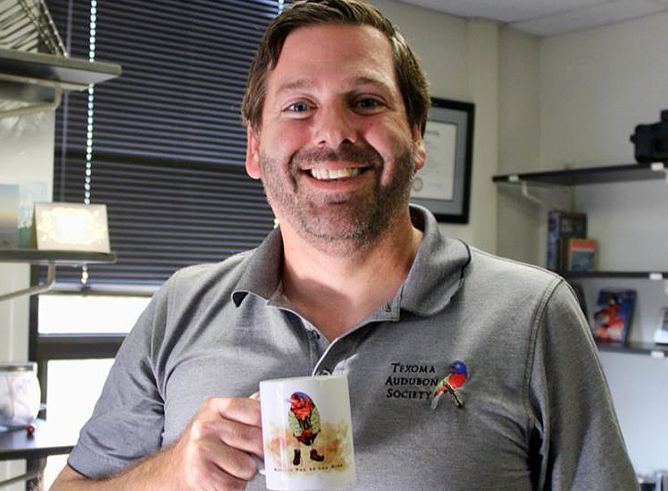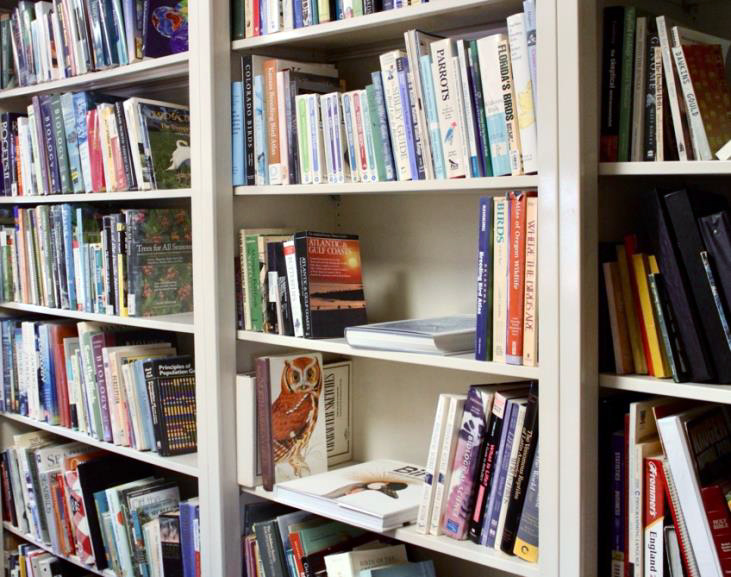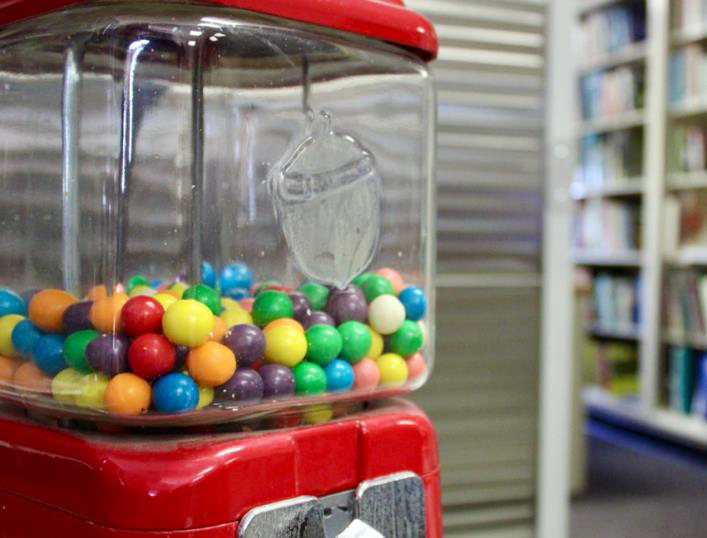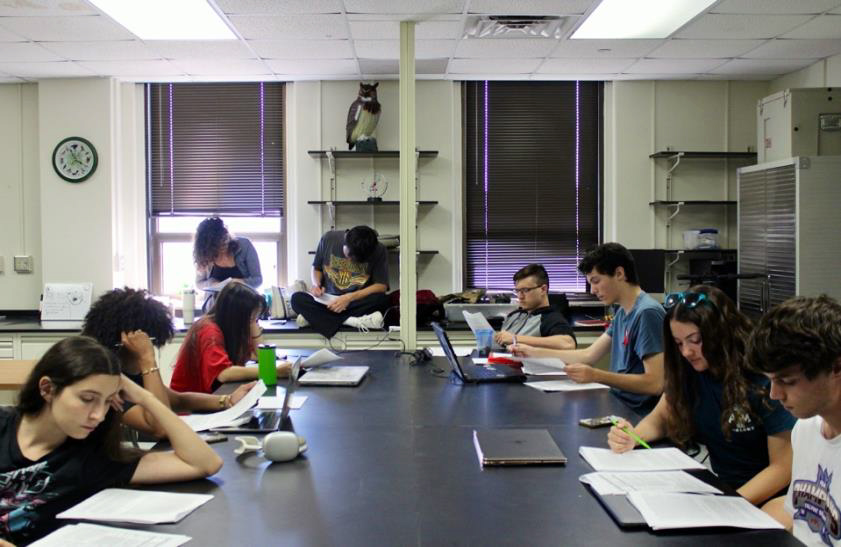
Stepping into Dr. Chris Butler's laboratory in Butler Hall on the Texas A&M University campus feels like entering an avian oasis. Shelves overflow with books about birds of every feather, while walls display vibrant artwork featuring myriad species. Overseeing it all is a watchful plastic owl that casts its unblinking gaze over the lab and its inhabitants.
Every detail in this lab points to Butler's lifelong love for birds — a passion he says has always been with him.
"When I was five, I was either going to become a professional fisherman or study birds,” he explains. “When I was six, I was either going to manage a ranch or study birds. And when I was seven, I was either going to be a rock star or study birds.”
Butler laughs as he recalls how his childhood dreams always circled back to working with birds. It was an innate connection that he just couldn't shake. Yet, like many young students, he didn't initially know how he would turn his passion into a career. He figured he'd head off to college and eventually discover his path.
Birds Of A Feather
Butler’s turning point came during his junior year of high school when a visit to Cornell University introduced him to Dr. Charlie Smith, a professor in the Department of Natural Resources. Smith took the young Butler under his wing, encouraging him to pursue his passion for ornithology at Cornell.

Thanks to Smith's guidance, Butler attended Cornell, where he not only pursued his interest in birds but also developed a desire to teach. "I learned I wanted to be a teacher in college," Butler shares. "It was Smith who inspired me to become a professor.”
Eager to impact students in the same way that Smith changed his life, Butler solidified his vision of becoming an educator while enrolled in Smith's field biology class. Through the course, he learned about "nature blindness."
"When you walk outside, you see trees, plants and animals, but they're just kind of in the background. You don't really know what you're looking at," he explains. The class forced Butler to slow down and truly observe his surroundings. "It made a huge impact on me to go from walking outside and not really noticing anything to noticing everything. And so, that is the sort of impact I eventually hope to have on my students."
Propelled by this newfound passion, Butler graduated with a bachelor of science in natural resources in 2000 before continuing his academic journey, ultimately earning a doctorate in zoology from Oxford University in 2004. Today, he is an experienced teacher and mentor in the Texas A&M Department of Biology, where he is dedicated to inspiring his students to be passionate about learning, hoping to open their eyes to the world around them.
A Space For All Students
Butler's passion for birds is unmistakable inside his lab, as is his enthusiasm for teaching. It's a warm and welcoming environment where students immediately feel at ease.
At the beginning of every lab session, Butler likes to offer students gumballs from his own machine (pennies provided, of course) and often buys snacks from a vending machine for everyone to share. The lab is a space for all students, from freshmen to Ph.D. candidates, to come together. Butler ensures everyone gains hands-on experience, from catching birds in the field to developing research projects. "I get them involved in hands-on activities, and as they grow intellectually, I encourage them to engage more deeply in the subject," he explains. Moreover, Butler's lab isn't only for biology or ecology students. Anyone sincerely interested in learning about and engaging in research is invited to join.
Beyond his own lab, Butler is dedicated to supporting students at every stage of their academic journey. As an instructional associate professor of biology, he teaches freshman biology, Chordate Anatomy, General Ecology and Genes, Ecology and Evolution. He also serves on committees for both Ph.D. and master's students and has mentored participants in the Academy for Future Faculty program. Whether he's inviting students to join him in the field for hands-on research or actively seeking job opportunities to help them advance, Butler is always looking for ways to guide and uplift his students.
Opportunity Takes Flight
Aeris Clarkson ’25, a senior zoology major from Arlington, Texas, has been part of the lab since Butler became a professor at Texas A&M in 2022. She fondly recalls first meeting him simply as "Chris" before she knew him as "Dr. Butler" during a visit to his home to see a rare bird in his possession.
From the beginning, she says Butler welcomed her warmly, and it wasn't long before she found herself in his lab. Clarkson noticed right away how dedicated he was to supporting his students. When she shared her own interest in studying hummingbirds, Butler went above and beyond, helping her secure a permit to band them. "He's the only person who would do that," Clarkson says. "Nobody else would put in the painstaking time and effort, but he does."
After discovering a passion for zoological research, Addie Earley ‘25, a senior vertebrate zoology major from Austin, left her policy studies behind. Butler's lab was her first research experience, but it didn't come without challenges. The night before a lab assignment was due, overwhelmed and panicked, she sent Butler a late-night email. To her relief, he responded with understanding, inviting her to come in before the lab. "He sat me down and walked me through the assignment," Earley recalls. "It felt good to be believed in and not made to feel lesser just because I didn't know what I was doing." Now, the Texas Conservation Alliance is conducting further research on the very project that once worried her — an opportunity that wouldn't have been possible without Butler's guidance and support.
Butler's students have also left a lasting impression on him. "I had a student a long time ago, and she was really interested in frogs. She got me to expand the boundaries of what I was interested in beyond just birds," he says. Watching her grow from a young undergraduate to a master's student and eventually, a professional with a career in the working world was very fulfilling for Butler. "I still keep in touch with her now, 15 years later. I get a little bit emotional," he adds.

An Invaluable Educational Nest
Although science and the world are constantly evolving, Butler often wishes he could slow the Earth spinning. "You watch them grow and develop, and it's fantastic,” he shares. “But it's also sad because everybody you interact with as a professor is here temporarily. They go and have their own lives elsewhere."
While Butler’s students may move on, it's unlikely they will ever forget the invaluable experiences and lasting memories they made in his lab. His is a career marked by a deep commitment to teaching, discovery and connection with both his students and the natural world. His lab serves as a nurturing environment where students can transform their curiosities into skills and achievements. Beyond studying birds, Butler inspires students to see the world in a new light. As a mentor, he supports their ambitions, helping them overcome doubts and believe in their potential long after they leave his lab.
Through his students, Butler has expanded his own horizons, proving that a passionate professor can really take flight and inspire generations to soar.
Katherine E. Hollen ’24 earned a bachelor of science in biology from Texas A&M University in May 2024 and currently is pursuing her master’s in science and technology journalism through the College of Veterinary Medicine & Biomedical Sciences.
